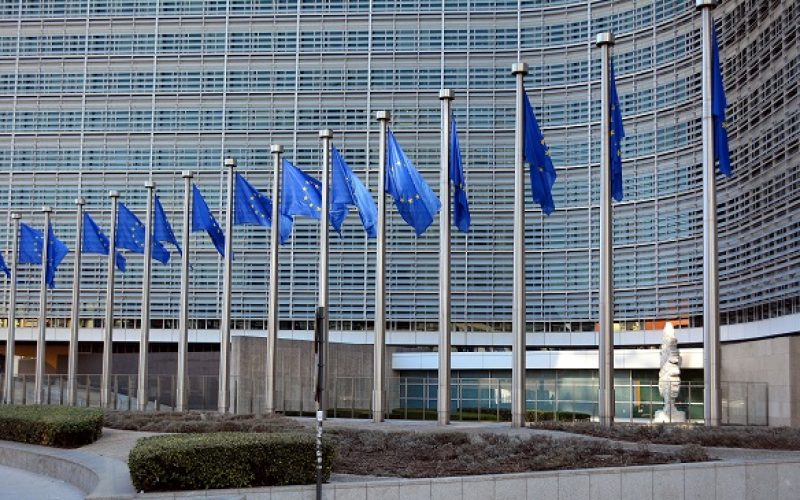by Katrina S. Dudley, CFA, Franklin Templeton Investments
Check out our “Talking Markets” podcast for more from Katrina and Mandana.
Amid the ravages of COVID-19, European equities were some of the worst performers. Since the start of 2021, the tide seems to have turned. In the six months ending 30 June 2021, the MSCI Europe Index returned 15.4%, edging out the S&P 500 Index return of 15.0%.1 Whilst past performance is in no way an indication of future performance, we think the recovery story may be sustained by three main themes. First, negative news coming out of the region regarding political upheaval and bad actors has subsided. A stronger, unified European Union (EU) can mean a more profitable EU with more stable markets and fewer exogenous shocks. Next, the bloc is emerging as a global leader when it comes to environmental, social and governance (ESG) and antitrust enforcement. Contrary to popular belief, more regulation can mean more competition and more opportunity, not less. Finally, despite some recent setbacks with the rise of the Delta variant, the vaccination rollout has gained momentum and positions the EU to take part in the global reopening and reflation trades. Here’s what we think investors need to know now.
No News is Good News
After years of upheaval caused by destabilising political movements and financial issues, a hush has fallen over the EU’s largest members. Greece has a new pro-business government. The bloc’s third largest economy, Italy, is now headed by Mario Draghi, a competent, pro-EU leader. The French far-right party, headed by Marine Le Pen, suffered a severe below in recent regional elections, garnering only 19% of the national vote. This was the party’s worst regional election result since 2015. Even the Catalan separatists seem to be taking the summer off, after tensions were diffused in June as the Spanish government pardoned several separatist party members who were serving long-term jail sentences.
Furthermore, the new administration under President Joe Biden in the United States seems to be making friends with key EU leaders, lessening the likelihood of trade or other frictions. It is also worth noting the German federal election is set to take place at the end of September. Germany is the largest economy in the EU and one of its most influential members. We find it reassuring that both current leading candidates are pro-EU and expect the winner to form another coalition government.
Additionally, the Next Generation EU (NGEU) fund brings much-needed support for peripheral countries and strengthens ties between member countries. NGEU is a €750 billion recovery package, which should be active through the end of 2023. More than 50% of the package will support efforts such as digital transitions, modernisation of agricultural policies, fighting climate change, biodiversity protection and gender equality efforts. The Multiannual Financial Framework (MFF) has funds set aside to spend on migration and border management, security and defense, and additional public administration efforts. This is a massive programme, with the potential to support higher levels of economic growth across the EU as member countries spend their allocated funds.
Regulation Nation
The EU is far ahead of the United States when it comes to corporate governance oversight and regulation as well as environmental initiatives. We feel this could provide opportunities within the region that have yet to develop in other markets.
A long-time platform of the US anti-regulatory movement has been that regulation hampers innovation and economic growth. However, the European model has shown this is not always the case. Regulation designed to hinder the development of monopolies can foster competition, allowing room for new players to enter the market. Recent EU action includes the European Commission opening a formal antitrust investigation into Google regarding its possible abuses of power as a leader in the digital advertising space.
The EU has a long history of being tough on technology companies. From early fines against Microsoft to its more recent actions against social media and platform companies, the Commission has taken a tough stance regarding data privacy, hate speech and anti-competitive actions. The EU has been at the forefront of action against large technology companies and the United States has started to adopt more of a European model of handling these corporations.
Looking back at the history of antitrust enforcement, many investors may be surprised to learn that the world’s vibrant software industry was created in response to the potential threat of antitrust action against International Business Machines (IBM). IBM had been bundling its software and hardware when it split those two businesses, so smaller entrepreneurial software companies could gain access to this growing industry. The EU is also becoming a global leader in tax reform, publishing its Communication on Business Taxation for the 21st Century this past May, which explains the area’s tax agenda for the next two years, aimed at promoting productive investment, entrepreneurship, and effective taxation.
Regarding environmental initiatives, the EU is putting its money where its mouth is, earmarking €419.9 billion across the NGEU and MFF plans for spending on natural resources and the environment. Keep in mind, this spending is not merely a proposal, it is approved. The plan is already being executed. In addition, the European Central Bank (ECB) is throwing its weight behind the new green initiatives and has issued a policy document stating it will not buy bonds from companies that do not comply with their new environmental policies.
The Trigger Delta
Europe has had a minor recovery setback due to the COVID-19 Delta variant. However, as vaccine rollouts continue, we expect this to become less of a factor. Digitalisation efforts in the region have led to an EU Digital COVID Certificate, which allows residents to provide digital proof they have either been vaccinated against COVID-19, have received a negative test result, or have recovered from the disease. The certificate should help people travel freely within the region. On the heels of the accelerating vaccination rate, the economic reopening should also accelerate. While the EU was slow to start vaccinations, it has quickly caught up with the United States and we believe that a vaccine-driven economic recovery will begin soon.
In terms of monetary policy, the ECB is following the lead of the US Federal Reserve (Fed) but continues to be more moderate than the US central bank. It is not expected the ECB will begin policy tightening anytime soon, and looser policy provides more fuel for the economic fire.
We believe the combination of the above factors create a positive backdrop for European equities. The EU has worked to draft, pass and enact policies that should bolster economic growth in the region. Political uncertainty has waned, regulation is fostering competition and the EU is emerging as a global leader in environmentally friendly business practices. Over the past year, we have taken advantage of opportunities in the consumer and technology sectors, which we believe were born directly of the region’s unique regulatory and economic framework. Given the accelerating vaccination rollout and the potential for additional opportunities, we think the time to get on board is now.
What Are the Risks?
All investments involve risks, including possible loss of principal. The value of investments can go down as well as up, and investors may not get back the full amount invested. Stock prices fluctuate, sometimes rapidly and dramatically, due to factors affecting individual companies, particular industries or sectors or general market conditions. Value securities may not increase in price as anticipated or may decline further in value. Investments in foreign securities involve special risks including currency fluctuations, and economic and political uncertainties.
Any companies and/or case studies referenced herein are used solely for illustrative purposes; any investment may or may not be currently held by any portfolio advised by Franklin Templeton. The information provided is not a recommendation or individual investment advice for any particular security, strategy, or investment product and is not an indication of the trading intent of any Franklin Templeton managed portfolio.
Important Legal Information
This material is intended to be of general interest only and should not be construed as individual investment advice or a recommendation or solicitation to buy, sell or hold any security or to adopt any investment strategy. It does not constitute legal or tax advice. This material may not be reproduced, distributed or published without prior written permission from Franklin Templeton.
The views expressed are those of the investment manager and the comments, opinions and analyses are rendered as at publication date and may change without notice. The underlying assumptions and these views are subject to change based on market and other conditions and may differ from other portfolio managers or of the firm as a whole. The information provided in this material is not intended as a complete analysis of every material fact regarding any country, region or market. There is no assurance that any prediction, projection or forecast on the economy, stock market, bond market or the economic trends of the markets will be realised. The value of investments and the income from them can go down as well as up and you may not get back the full amount that you invested. Past performance is not necessarily indicative nor a guarantee of future performance. All investments involve risks, including possible loss of principal.
Any research and analysis contained in this material has been procured by Franklin Templeton for its own purposes and may be acted upon in that connection and, as such, is provided to you incidentally. Data from third party sources may have been used in the preparation of this material and Franklin Templeton (“FT”) has not independently verified, validated or audited such data. Although information has been obtained from sources that Franklin Templeton believes to be reliable, no guarantee can be given as to its accuracy and such information may be incomplete or condensed and may be subject to change at any time without notice. The mention of any individual securities should neither constitute nor be construed as a recommendation to purchase, hold or sell any securities, and the information provided regarding such individual securities (if any) is not a sufficient basis upon which to make an investment decision. FT accepts no liability whatsoever for any loss arising from use of this information and reliance upon the comments, opinions and analyses in the material is at the sole discretion of the user.
Products, services and information may not be available in all jurisdictions and are offered outside the U.S. by other FT affiliates and/or their distributors as local laws and regulation permits. Please consult your own financial professional or Franklin Templeton institutional contact for further information on availability of products and services in your jurisdiction.
Issued in the U.S. by Franklin Distributors, LLC, One Franklin Parkway, San Mateo, California 94403-1906, (800) DIAL BEN/342-5236, franklintempleton.com – Franklin Distributors, LLC, member FINRA/SIPC, is the principal distributor of Franklin Templeton U.S. registered products, which are not FDIC insured; may lose value; and are not bank guaranteed and are available only in jurisdictions where an offer or solicitation of such products is permitted under applicable laws and regulation.
CFA® and Chartered Financial Analyst® are trademarks owned by CFA Institute.
____________________
1. Indices are unmanaged and one cannot directly invest in them. They do not include fees, expenses or sales charges. Past performance is not an indicator or a guarantee of future results.
This post was first published at the official blog of Franklin Templeton Investments.














